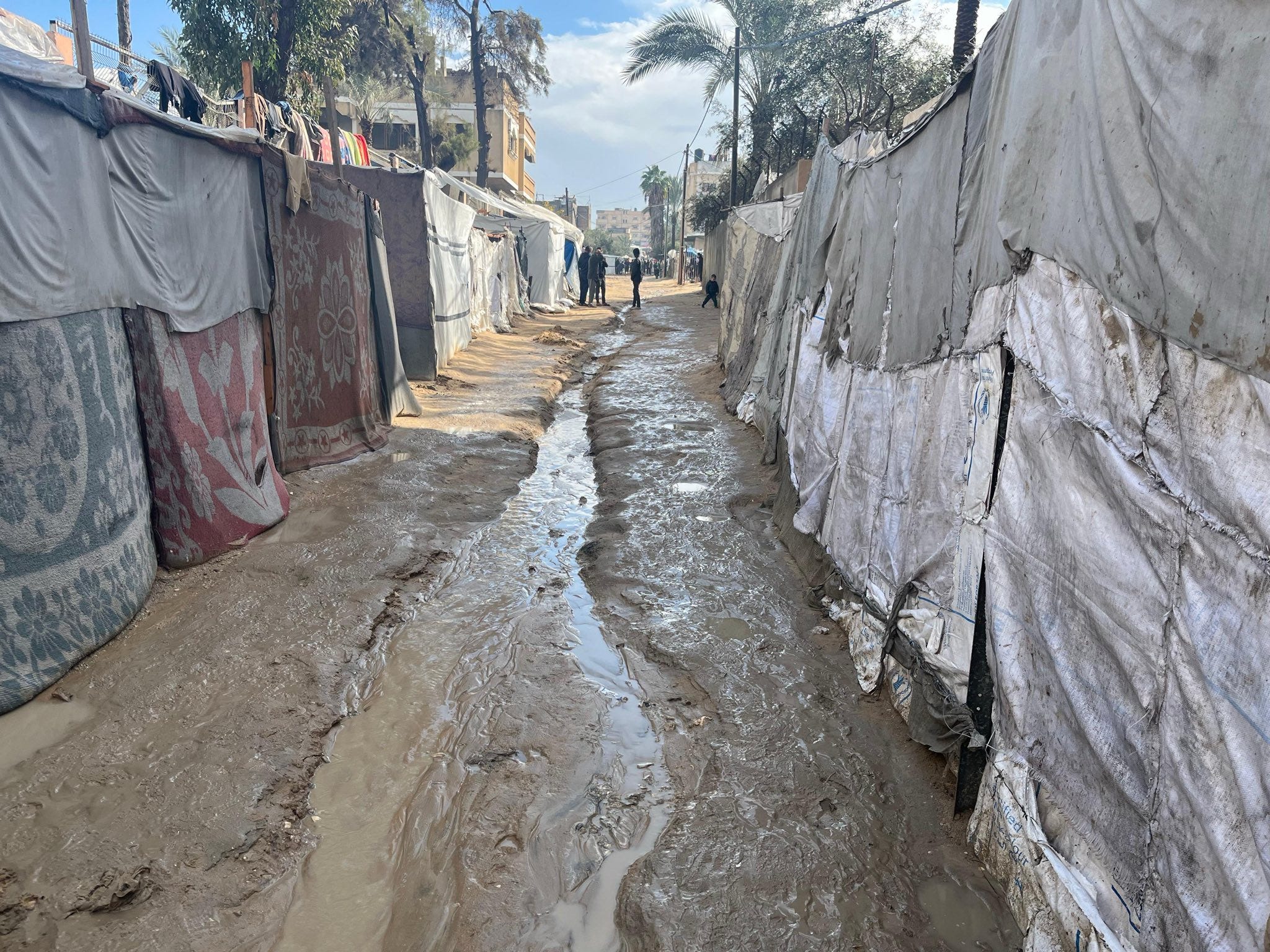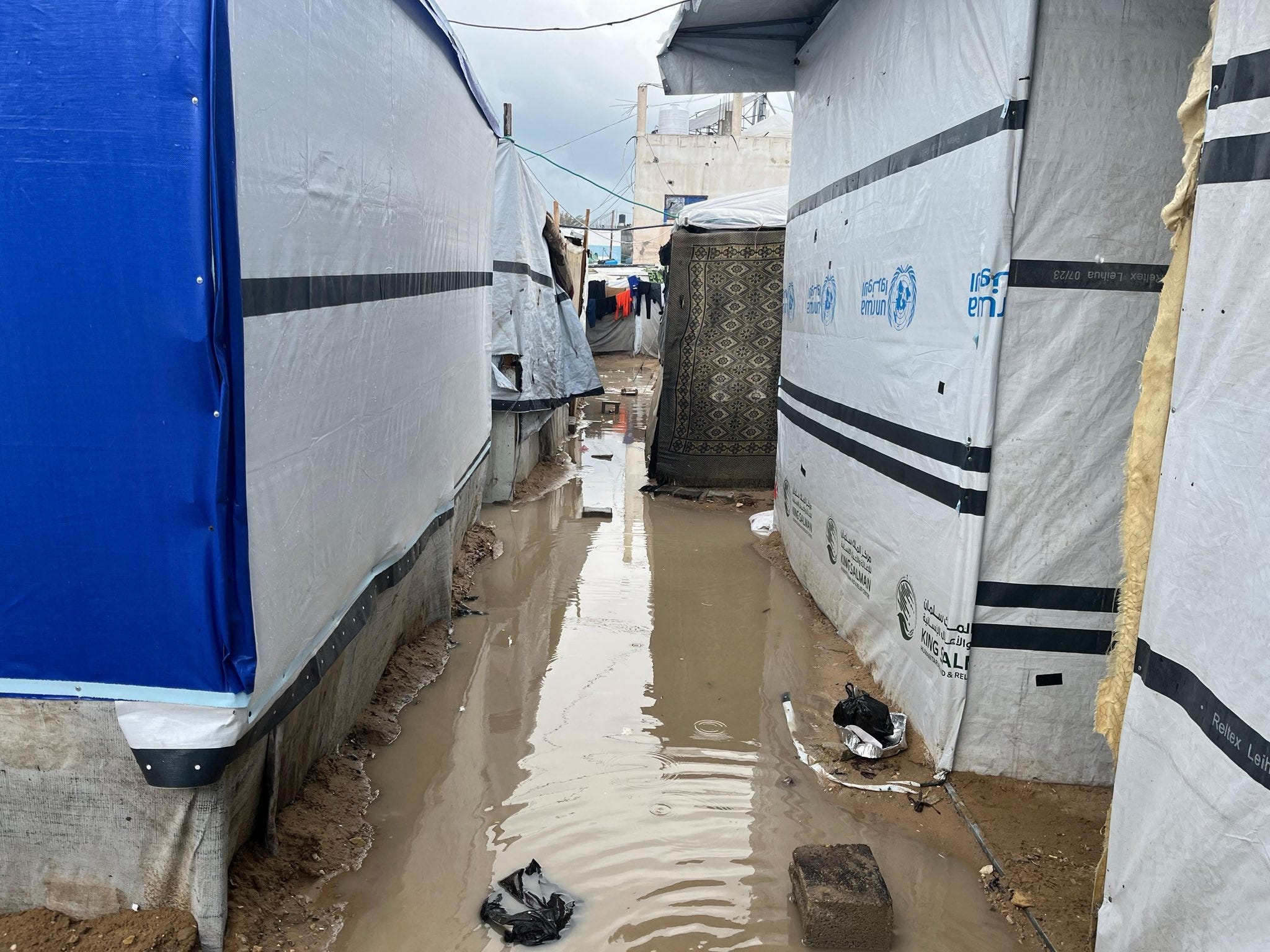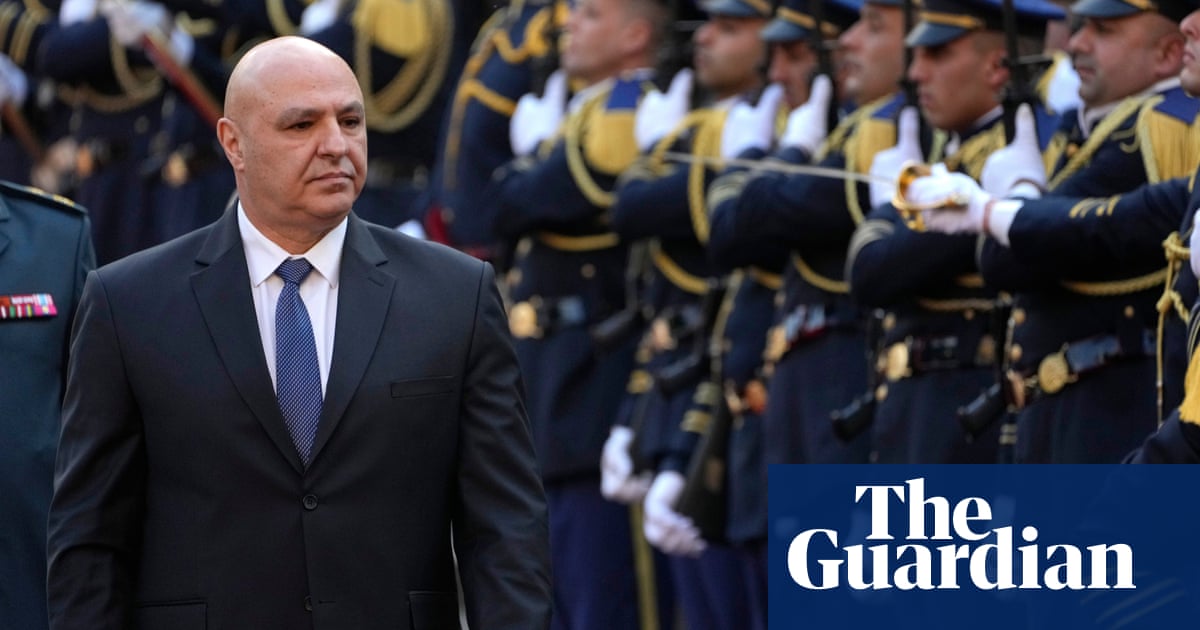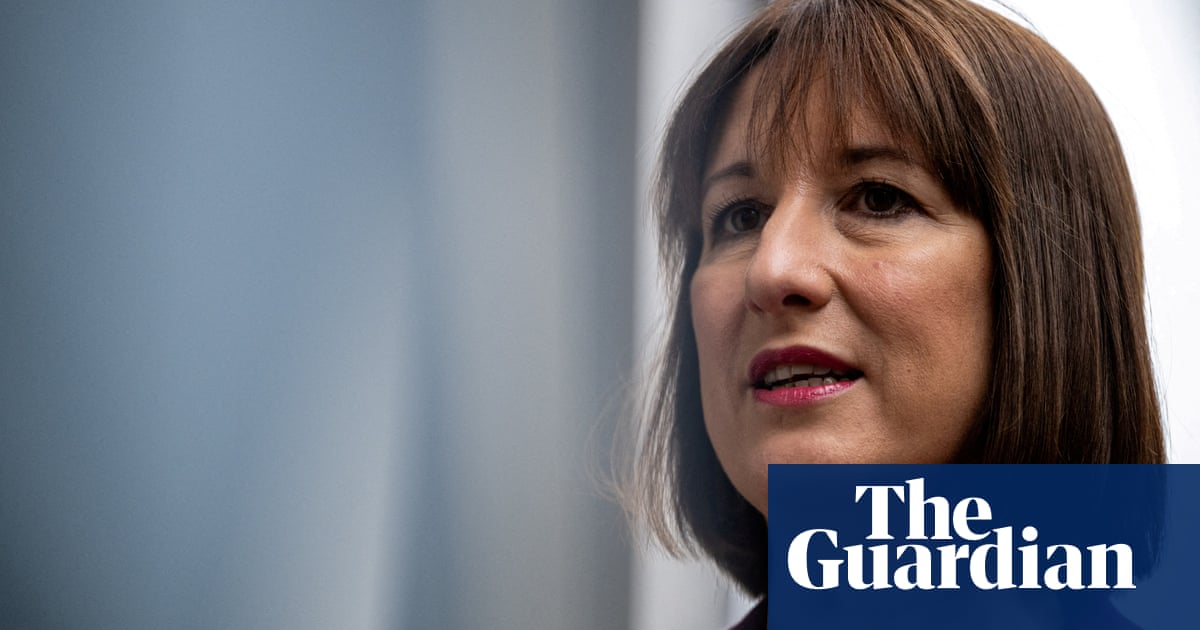DEIR AL-BALAH, GAZA—On the morning of Dec 28th, Yahya Al-Batraan, a 40-year-old father of five sons and three daughters, got up in his dilapidated tent in Deir al-Balah’s western parts near the beach to find his 1-month-old baby, Jomaa, had frozen to death. His twin brother was hospitalized for hypothermia at Al-Aqsa Martyrs Hospital and faces a similar fate. Al-Batraan was displaced from Beit Lahia a year ago. His two brothers and many of his relatives were killed before his eyes. His house was razed to the ground after Israeli troops invaded and annihilated the camp.
Six people have frozen to death in Gaza during the past week, where the low temperatures have reached the low 40s in Fahrenheit—or about 8 degrees Celsius; five were infants less than a month old. Al-Batraan’s newborn baby will not be the last to die from hypothermia as conditions continue to deteriorate in the besieged territory.
“My wife and I got up in the morning. We checked the children as always. But my 1-month-old twin didn’t show any vital signs at all. When I touched him, his body was like a bottle of ice. I took him and rushed to the hospital on foot because I didn’t have the money for a taxi or even an animal-drawn cart. Doctors instantly told me that he passed away. I couldn’t hold my senses and burst into tears. Just moments later, my wife rang me to inform me that the other twin wasn’t breathing. We took him to the hospital. He is now under the resuscitation devices inside the ICU. However, doctors told me that he would die in the upcoming hours,” Al-Batraan said, as he choked in pain.
“I live with my family and my paralyzed parents in a tiny, flimsy tent made from torn blankets and pieces of nylon near the sea. We only have four mattresses and four blankets. All are so ripped apart. As it gets colder at night, I collect some garbage to set up a fire to heat the tent for the children. My children and I only wear one or two pieces of old clothing. We are always shivering with cold during the night hours. I sleep most nights without blankets and just put on my sweater.
“The babies’ mother can’t breastfeed them because she is severely malnourished and suffers from hypertension. Therefore, they’re both 1.6 kg. We barely eat one time a day, and we get our meal from one of the nearby free food distribution centers. One of my children has a trauma of looking at the sand because she has been eating Dugga for the past 14 months. We have no food, no water, no clothes, and no medications. Literally nothing. My tent has been flooded by the rain and blown away by the wind. And I am just waiting for the death of my other baby. I can’t take more heartbreaks,” he told Drop Site News.
“The hardest thing someone can ever endure is to see their children dying in front of them. There are no words to describe this feeling. But I went through it. My message to the world is that we’ve lost our dignity and everything. We need warmth and peace. Someone has to stop this genocide.”
Dr. Syed is an American emergency doctor who spent nearly a month in Gaza volunteering at Gaza’s hospitals, particularly Al-Aqsa Martyrs Hospital in Deir al-Balah. She says that she is not shocked that babies are dying from the cold—the living conditions she witnessed are harsh and these babies live on the seaside where temperatures significantly drop. She also insists that Israel’s banning of building materials, which prevents building proper dwellings, amounted to their deaths.
“Dwellings need to be more secure. The humanitarian safe zone is neither humanitarian nor safe since most of the casualties we’ve been receiving are from there. If we want to end this, we need an immediate ceasefire and allow aid and decent containers and building materials in. It’s a huge difficulty for newborn babies to maintain their temperatures when they live under horrible circumstances and without basic human needs,” Dr. Syed explained to Drop site News.
“I’ve been in some people’s tents, and I can imagine the suffering against the backdrop of the extreme wind and rain,” she added. “Also, people don’t have good clothing to be insulated from the cold. Nor can they provide the medications to prevent hypothermia. Consequently, there is a dire need to allow shelter and proper nutrition in, which is just a basic human right. Almost every child I saw at the hospital here has malnutrition signs and patches of hypopigmentation on their skin and hair as well as some sort of inflammatory infectious conditions, let alone the gastrointestinal illnesses they are contracting because of terrible water contamination. I saw an infant who just kept coming to the hospital due to diarrhea, which is a result of the same living conditions. The future for children will be very bleak. There is actually no future.”
Dr. Khalid Abu-Habel, a volunteer emergency doctor at Al-Aqsa Martyrs Hospital, has been tirelessly working since the outbreak of Israel’s genocidal war. He describes the situation in Gaza as “unbearable” and “unsolvable” amid Israel’s continued blockade of the crossings. “In the open air along the sea line, temperatures hugely drop. So, it is almost impossible to protect them even if they have the clothes,” he told Drop Site News.
“People in Gaza live in tents,” he continued. “Most are along the sealine. The environment they are living in plays a major role in their suffering. Therefore, hypothermia is an anticipated result of the conditions. Children have neither winter clothes nor a good refuge to insulate them from the cold. They are even surrounded by litter and garbage and have already contracted viral infections. Most are malnourished and immunocompromised. Consequently, their bodies can lose temperature and can contract hypothermia very easily.”
Newborns, he said, are at particular risk: “Most newborn babies are born with impairments or deformities because mothers have been subjected to unimaginable trauma, malnutrition, dehydration, and several diseases. These children will easily be exposed to the cold and hypothermia and die.”
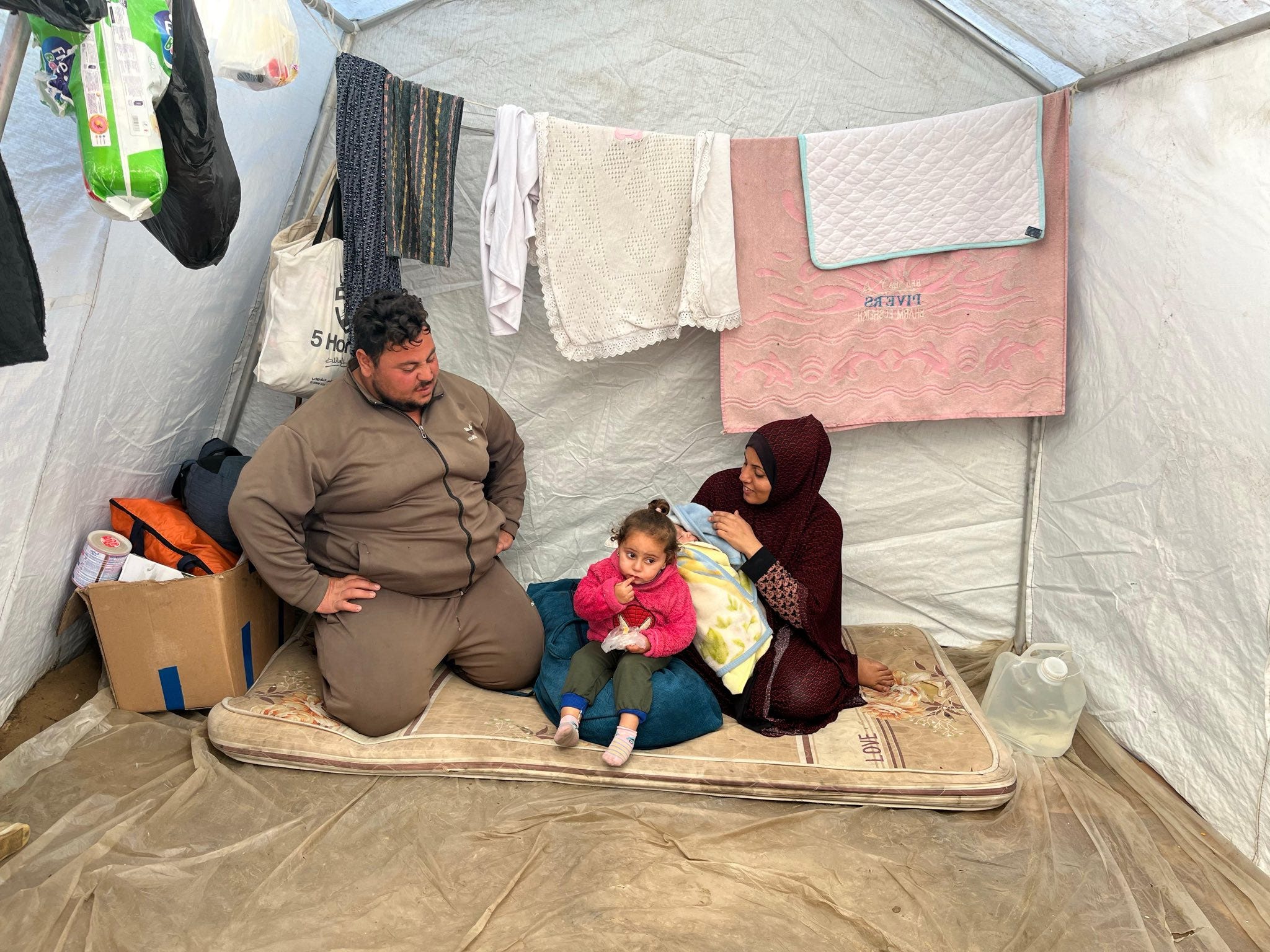
Sabreen Saleh, 32, has taken shelter in a leaky tent in Deir al-Balah with her husband and her two children, one of whom is a breastfeeding infant, after being displaced from Jabalya in northern Gaza. She has been very concerned about her baby’s health.
“The cold kills us during the night. We can’t bear it at all. We are here sleeping on the ground with only two mattresses and three blankets. But they are actually just shreds of fabric. We’ve been drowning over the past few days since the rain sneaks through our perforated tent and wets us and our belongings. We’re trembling with cold all day. My husband collects some wood to make a fire and warm us. But as we can’t afford to bring wood all the time, he sometimes resorts to shredding his own clothes or blankets to burn for the fire. My children and I have only some old clothes. We can’t afford anything. We mainly depend on the free food distribution center for our only meal, and we’ve been asking for aid from humanitarian organizations. However, we’ve only received aid two times since the war broke out.
“I fear a lot for my baby, especially after the death of several infants from the cold in Gaza. He wears only summer clothes because there is no winter clothing, and if available, they are sold at inflated prices. Since he was born a month ago, I haven’t showered him except for one time because I am scared of his consequent imminent death. During the night, his face becomes blue. I, as a result, take the towel and roll it around his body. My husband and I sometimes put our own blankets on our children and don’t sleep. What should we do? We don’t have any solutions. Our knees and bones hurt because of the freezing temperatures. But we can’t even purchase some medicine for our pain. We need a rainfly, suitable housing, and good nutrition. My children lack everything. This is our life drenched in extreme pain and horror. I just hope the war ends and we can return to what’s left of our houses.”
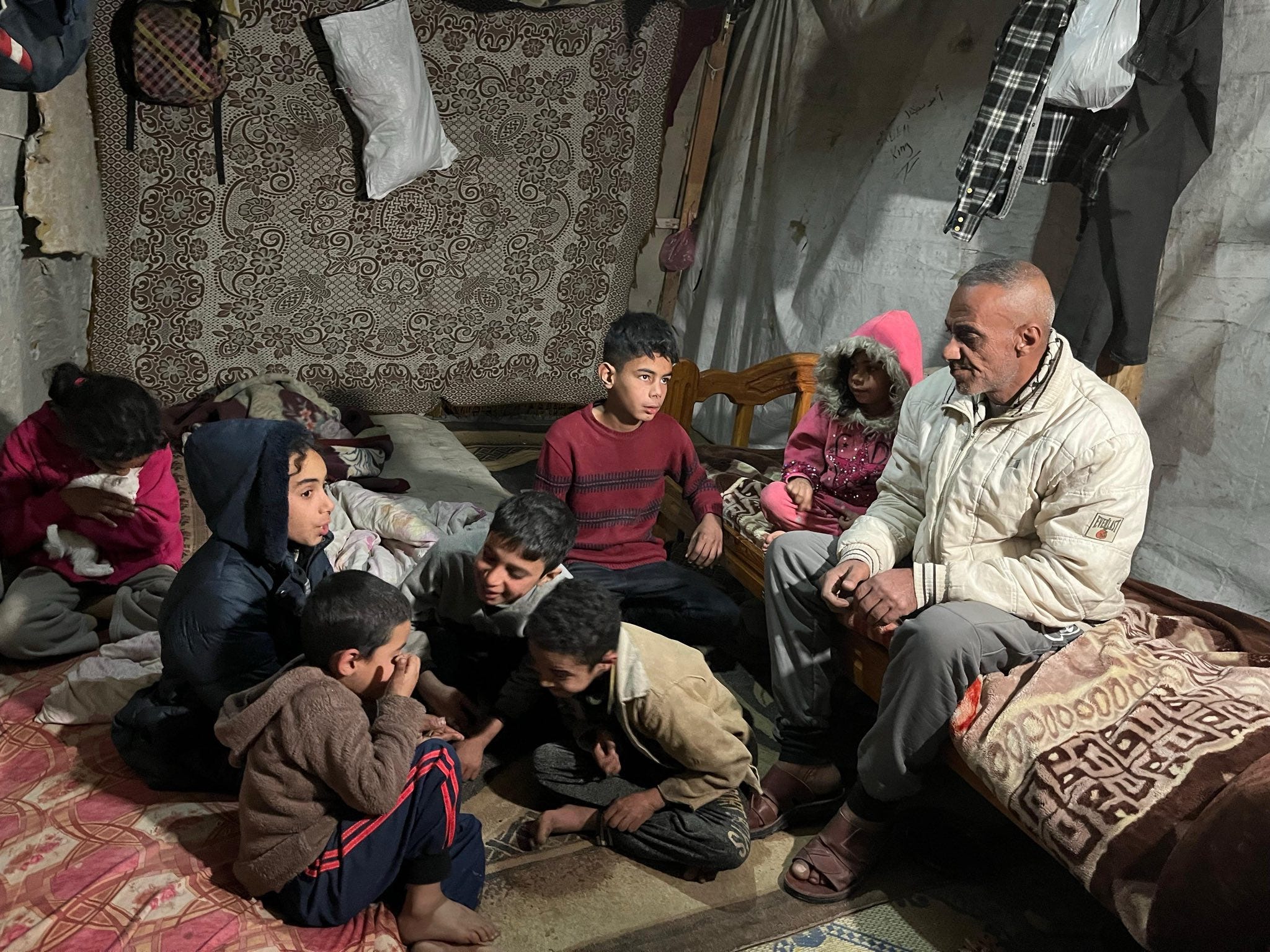
Hossam Al-Nabaheen, a 52-year-old displaced father of eight orphaned children, has been surviving on hardly a little for months as Israel bombed his house and displaced him from Al-Buraij camp in central Gaza. One of his sons has a chronic kidney condition treated with medications that are now too expensive for them. In his shabby tent in Deir al-Balah, the bare human necessities are nowhere to be found.
“I have eight children who desperately require everything: food, water, clothes, and medicine. But I am unable to get anything for them because prices are skyrocketing, staples are rarely available, and clothes need huge money to purchase,” he said. “We are shaking with cold every single day in our tent located in a very open area. The bitter fact is that we live on the streets where no protection, warmth, or safety can be seen. It is hellish. All that we have are two blankets and three mattresses. Our tent has been flooded by the rain because I can’t provide a tarp. My children are always barefoot and have only one piece of clothing on their bodies. They always have skin diseases and severe gastroenteritis because of the glacial weather. Yet, I can’t provide any medications, food, or good shelter for them. What else should I tell you? There are simply no words.”
“We gather around a woodfire at night to heat our bodies,” he continued. “But then, the cold debilitates us at night. As my children can’t bear the cold, I take my only blanket and cover them with it. This is my makeshift kitchen where I only have one bottle of oil. We only eat from the free meal distribution center. We’ve been calling on all humanitarian organizations, but we haven’t received any help. I have a massive responsibility and can’t take it under these stark and horrific conditions. This genocidal war has taken everything from us, including our homes and souls. I hope someone can help me navigate this grim, totally unavoidable reality. And we are praying for an end to this war in the new year.”
As long as Israel’s war and humanitarian blockade continues, more deaths from the cold are expected. “They need proper shelters, balanced nutrition, and a healthy environment as well as medications,” said Abu-Habel. “Nevertheless, this is unfeasible as all these things are not allowed in. An immediate end to the war will solve things. But as long as the cold weather hits Gaza, we mustn’t be surprised that more people, particularly children, will die from hypothermia in the upcoming weeks.”
Article by:Source


